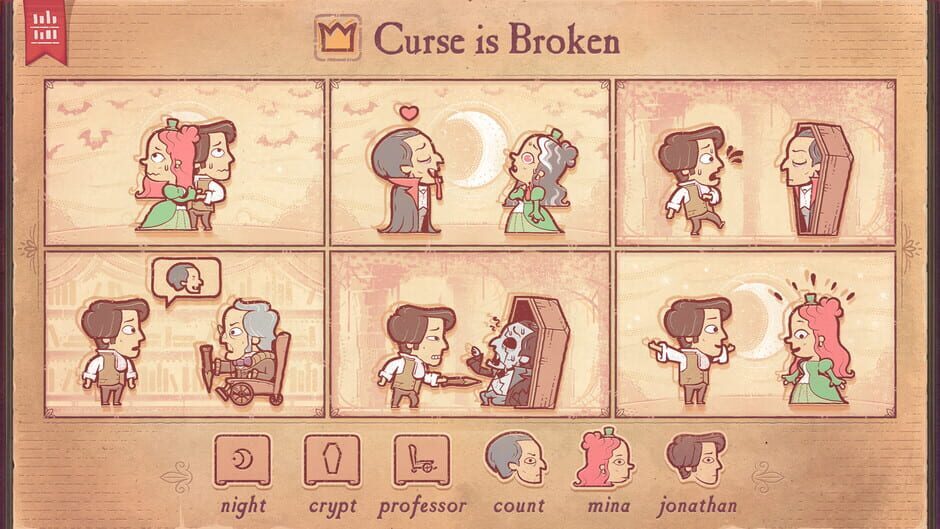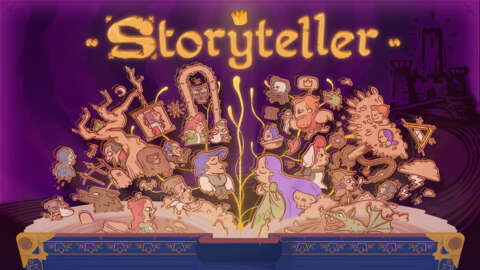For many of us, the fantastic tales of knights and dragons, love and loss, and brave heroes overcoming all obstacles are the ones that made us fall in love with storytelling. However, as we get older and life grows more complex, so do the types of stories we yearn for. Although the hero’s journey may serve as a foundation for countless tales, these stories ultimately evolve into retellings, reimaginings, subversions, and entirely new creations–ones that alter our notions as to what a story can be. It is this feeling of surprise and delight that Storyteller aims to capture. However, the imaginative puzzle game ultimately fails to bottle that magic, failing to meaningfully evolve and instead delivering a repetitive and underwhelming experience.
The premise of Storyteller is simple yet tantalizing: You create stories that yield a certain outcome by altering the order in which key events occur. You do this by filling in boxes that resemble comic strip panels, using an established list of characters and settings to do so. As you structure your story, adjusting variables where needed in order to create the ending needed to pass the level, the panels interact with each other, resulting in a sort of interactive butterfly effect.

The challenges start off simple enough–make the prince and princess fall in love, help the knight slay the monster, etc.–then quickly become a bit more complex, requiring you to understand a certain character’s temperament and how that may flavor their interactions with others. For example, the noble knight is wary of murdering another character. The bloodthirsty baron, on the other hand, will leap at the opportunity. Similarly, the knight will always vie for the queen’s affection, though it remains up to you to get her to feel the same towards him.
